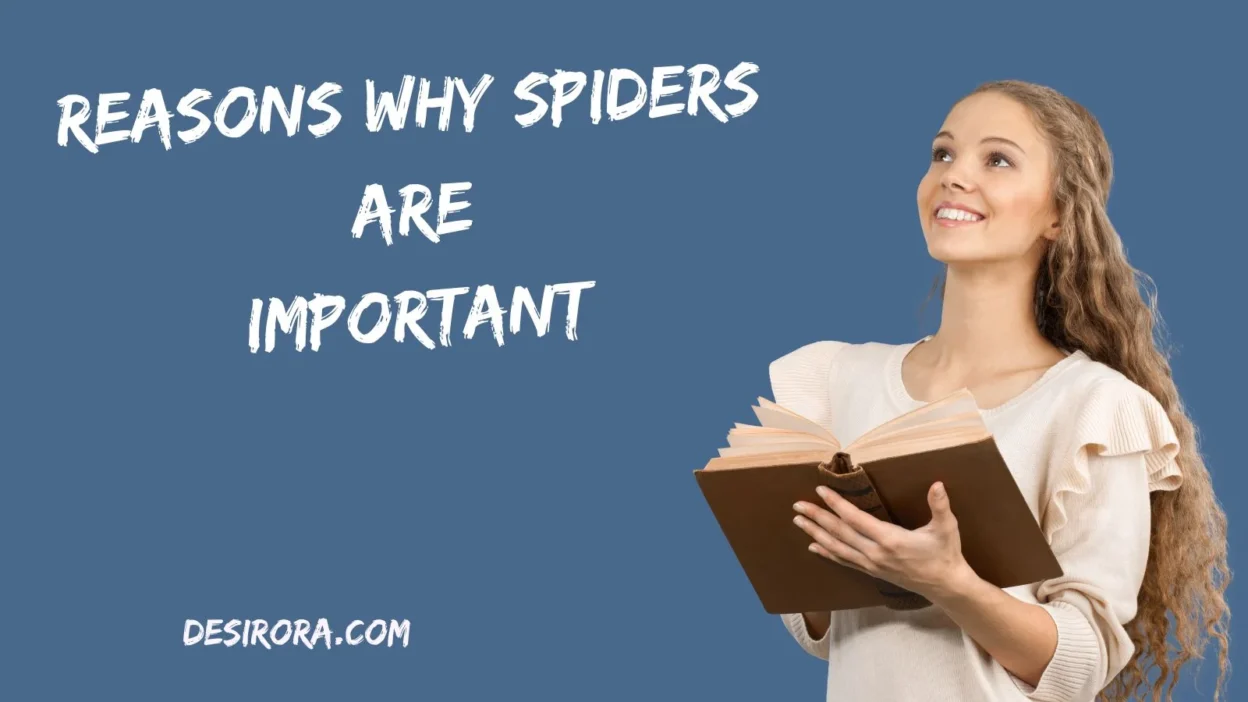Spiders might not be everyone’s favorite creatures, but these eight-legged wonders play a far greater role in our world than most people realize. Beyond the webs in corners and the occasional jump scare, spiders quietly help keep our planet in balance. They act as natural pest controllers, biodiversity builders, and even silent partners in science and medicine.
Without spiders, our ecosystems would be overrun with insects, our crops would suffer, and many food chains would collapse. From gardens to rainforests, spiders protect plants, sustain soil health, and feed countless other species. Even their silk and venom inspire innovations in technology, healthcare, and engineering.
In this article, we’ll uncover the real reasons why spiders are important—not just for the environment, but for humans too. You’ll see how these misunderstood creatures make life cleaner, healthier, and surprisingly more connected than you ever imagined.
What spiders are and how they fit into the ecosystem
Spiders are fascinating creatures belonging to the arachnid family. Unlike insects, they have eight legs and produce silk from spinnerets located at the back of their bodies. Found almost everywhere on Earth except Antarctica, spiders thrive in forests, deserts, grasslands, gardens, caves, and even our homes.
While many people view spiders as creepy or dangerous, the truth is they’re essential for maintaining balance in nature. They play critical ecological roles as predators, helping control insect populations that could otherwise grow out of hand. Without spiders, we’d be dealing with far more pests—and far more problems.
Spiders are among the most adaptable creatures on the planet. They weave intricate webs, hunt with remarkable precision, and even use their silk for protection and mobility. Their ecological contribution extends beyond pest control; they’re an integral part of the global biodiversity network that sustains life on Earth.
Natural pest control: how spiders help us fight insects
One of the most obvious—and most valuable—reasons spiders are important is their role as natural pest controllers. Every year, spiders collectively consume hundreds of millions of tons of insects worldwide.
How spiders protect us and our crops
- They eat pest insects: Spiders feed on flies, mosquitoes, moths, beetles, cockroaches, and more. These are the same pests that spread diseases, damage crops, and invade homes.
- They reduce pesticide need: Since spiders handle pest control naturally, farmers and gardeners can use fewer chemical pesticides, which benefits both humans and the environment.
- They balance ecosystems: By keeping insect populations in check, spiders help prevent outbreaks that could devastate crops or spread illnesses.
A real-life example
Think of your home garden. If spiders weren’t around, caterpillars, leaf beetles, or aphids might destroy your plants. But a few garden spiders can drastically reduce those numbers, saving your plants and ensuring a more productive harvest—all without toxic sprays.
Why it matters
- Less damage to crops and food supplies
- Reduced mosquito populations (and fewer bites!)
- Lower environmental pollution from pesticides
- A healthier ecosystem with natural checks and balances
In short, spiders quietly save farmers money, protect your produce, and make your home a safer, cleaner place.
Spiders and biodiversity: the food web and ecosystem health
Spiders are not only predators—they’re also prey. That’s what makes them an essential link in the food web.
The predator-prey connection
- Predators: Spiders eat countless insect species, controlling their populations naturally.
- Prey: Birds, reptiles, frogs, small mammals, and even other spiders rely on them as a food source.
- Indicators: The number and types of spiders in an area can reveal how healthy the environment is.
When spiders disappear, ecosystems begin to unravel. Without them, insect populations can explode, leading to overgrazing of plants and decreased biodiversity. That imbalance ripples upward—fewer insects for birds to eat, more crop damage for humans, and less stability in the food chain overall.
By maintaining equilibrium, spiders indirectly help sustain forests, farms, and gardens alike.
Spider silk, venom, and scientific uses
Spiders have inspired countless scientific innovations. Their silk and venom hold secrets that could revolutionize medicine, materials science, and technology.
Spider silk: nature’s wonder fiber
Spider silk is one of the strongest and lightest materials known. It’s tougher than steel (by weight) and more elastic than nylon. Because of its remarkable properties, researchers study spider silk for potential uses such as:
- Medical sutures: Strong yet flexible for delicate surgeries
- Protective fabrics: Lightweight armor, ropes, and nets
- Tissue engineering: Building scaffolds for organ regeneration
Imagine bulletproof clothing that feels like cotton or stitches that dissolve safely into the body—spider silk research brings those possibilities closer every year.
Spider venom: powerful and promising
Spider venom isn’t just about defense—it’s a biochemical goldmine. Scientists are exploring its compounds for treating:
- Chronic pain
- Heart arrhythmias
- Stroke and neurodegenerative diseases
Each species’ venom contains unique proteins that could hold keys to new medicines. Ironically, what people often fear most about spiders might someday save lives.
Technology inspired by spiders
Beyond silk and venom, spider behavior has inspired robotics, architecture, and even AI algorithms. Web patterns teach engineers about structural efficiency, and the way spiders hunt has influenced motion sensors and drones.
Spiders in gardens and agriculture: benefits for humans
Spiders play unsung yet powerful roles in both gardens and agriculture.
Garden heroes
A healthy garden usually means a healthy spider population. Here’s why:
- They control pests like aphids, caterpillars, and flies.
- They reduce the need for harmful sprays.
- They contribute to natural soil enrichment by leaving organic material (like prey remains).
- Their webs trap flying insects before they damage your plants.
Agricultural allies
In large-scale farming, spiders are allies to sustainable agriculture. Their appetite for pests helps protect crops, especially in organic and low-chemical systems. A thriving spider community can prevent pest infestations that would otherwise require costly intervention.
Farmers in many parts of the world now recognize spiders as biological control agents, working alongside pollinators like bees and predatory beetles to maintain ecological balance.
At home
Even in houses, spiders quietly help control pests such as ants, mosquitoes, and moths. If you occasionally spot a spider in a corner, think of it as your personal pest patrol—free of charge.
Common types of spiders and their roles
Let’s explore a few common spider types you might encounter and how each contributes to ecological balance.
| Spider Type | How They Help | Fun Fact |
| Orb-weaver spiders | Build large circular webs that trap flying insects | Their webs are rebuilt daily for maximum efficiency. |
| Wolf spiders | Hunt on the ground without webs, targeting crawling insects | They carry their egg sacs and young—unique among spiders. |
| Jumping spiders | Active hunters with excellent eyesight | Known for their curious behavior and bold jumps. |
| Garden spiders | Control crop pests by catching leaf-eating insects | Often spotted near flowers or vegetables. |
| House spiders | Keep indoor pest populations under control | Most are harmless and avoid humans entirely. |
Each spider type fills a specific ecological role, making them indispensable for biodiversity and natural pest management.
How to live alongside spiders safely and respectfully
Not everyone loves spiders—and that’s okay. But coexisting peacefully with them is easier (and safer) than most people think.
Easy tips for spider-friendly living
- Learn to identify local species. Most are harmless and beneficial.
- Avoid harsh chemicals. Pesticides kill spiders and the good bugs they eat.
- Gently relocate. If you find one indoors, trap it in a cup and release it outside.
- Keep your home tidy. Reducing clutter discourages both insects and spiders.
- Encourage biodiversity outdoors. Leaf litter, plants, and mulch create healthy habitats for spiders and their prey.
Staying safe
While a few spiders have medically significant bites, the vast majority are harmless and will only bite if provoked. Wearing gloves in storage areas, shaking out shoes, and being aware of your surroundings are simple precautions that keep everyone safe.
Living with spiders doesn’t mean inviting danger—it means embracing balance. When treated with respect, spiders become allies, not adversaries.
Myths and facts: what spiders really do
| Myth | Reality |
| All spiders are dangerous to humans. | Less than 1% of spider species can harm humans. Most bites are mild or harmless. |
| Spiders are dirty or spread disease. | Spiders actually help reduce disease by eating mosquitoes and flies. |
| Spiders invade homes deliberately. | Most wander in accidentally while hunting or seeking shelter. |
| Killing spiders keeps your home cleaner. | Removing spiders often increases pest activity since they control insects. |
| Spiders don’t benefit humans. | They support agriculture, medicine, and environmental balance every single day. |
Dispelling these myths helps replace fear with understanding—and maybe even appreciation.
Quick reference table: Spider roles and benefits
| Spider Role | How It Helps Humans and Nature |
| Predator | Controls pest populations naturally |
| Prey | Provides food for birds, reptiles, and small mammals |
| Silk producer | Inspires strong, lightweight materials |
| Venom source | Provides compounds for medical research |
| Ecosystem indicator | Reflects environmental health and biodiversity |
| Soil contributor | Adds organic matter through remains and web material |
Spiders are multitasking marvels that quietly keep the natural world running smoothly.
Conclusion
Spiders aren’t just background creatures or Halloween decorations—they’re vital to life as we know it. They keep pest populations under control, sustain biodiversity, inspire scientific breakthroughs, and even contribute to healthier soil and crops.
By understanding their importance, we can shift our perspective from fear to respect. The next time you see a spider weaving its web or patrolling your garden, remember: it’s working tirelessly to make your environment safer and more balanced.
Embracing spiders means embracing a more sustainable world—one where nature’s smallest architects help preserve its largest systems.
FAQs
1. Are spiders really beneficial to humans?
Yes! Spiders reduce insect populations, protect crops, and even contribute to scientific advancements through their silk and venom.
2. Do spiders help with mosquito control?
Absolutely. Many spiders catch and eat mosquitoes, helping reduce bites and potential disease transmission.
3. Is it okay to have spiders in my home?
Yes, as long as they’re harmless species. They eat common pests like flies and moths, providing natural pest control.
4. Can spider silk really be used in medicine?
Yes. Researchers are developing medical sutures, tissue scaffolds, and other materials using spider silk’s unique properties.
5. What should I do if I see a spider indoors?
Don’t panic! Gently trap it in a glass and release it outside. Avoid killing it—it’s part of your home’s natural balance.

Aldous Huxley was a visionary writer and philosopher whose works explored human nature, consciousness, and the future of society. His ideas continue to challenge minds and inspire generations.



